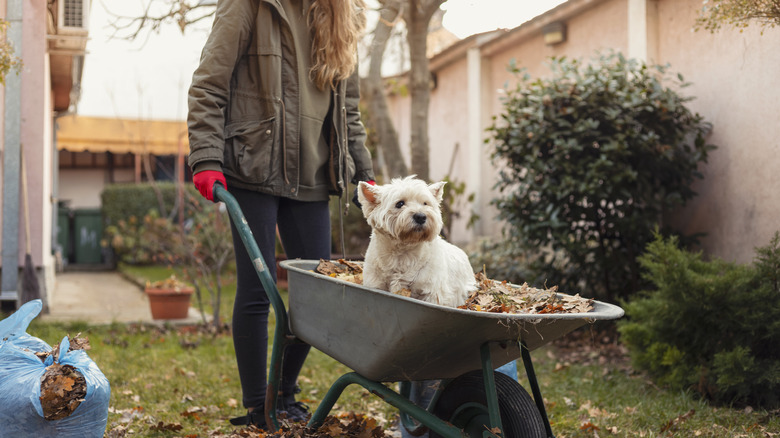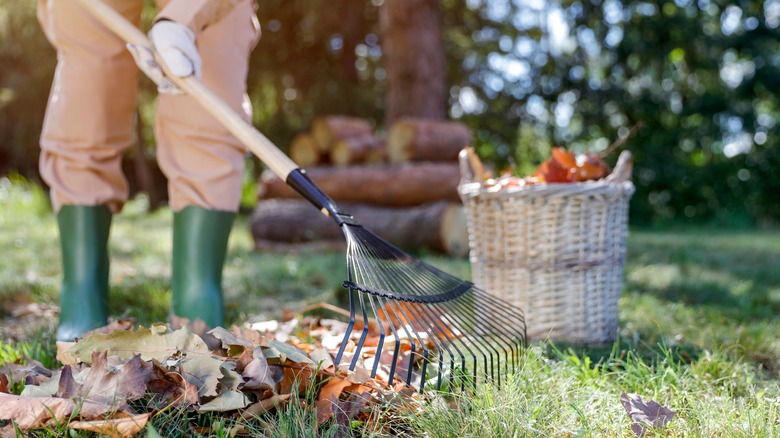Why You Should Get Rid Of Yard Debris Before The First Frost
Over the course of a lawn's life, its proud parents spend hundreds of dollars and hundreds of hours on these lush swaths of precious grass. After such a significant investment, it's important to make sure it stays as healthy as possible. Winterizing your lawn as cold weather approaches is a crucial step in maintaining healthy grass, and giving the green stuff a good cleanup at the end of a growing season is a smart part of long-term lawn care.
Clearing organic matter and manmade objects from your lawn prevents potential pests and diseases from taking hold and doing damage while freeing up its surface to absorb sun, water, and nutrients. The goal at this time is to let the grass rest and regenerate with plenty of access to fresh air. Giving your turf a good raking and storing summer yard fixtures off of the grass will make a brilliant carpet of grass much more likely once spring rolls around.
The possible perils of messy winter lawn
Rotting organic matter can make lawns vulnerable to diseases like brown patch and red thread that crop up when the temperatures drop. Piles of sticks and twigs left over from pruning can lure in destructive insects looking for a cozy home. If left in place, dead leaves and twigs can soak up winter moisture and become soggy. Mats of these materials can suffocate the lawn and block out light. Even when your lawn appears dormant above-ground, the plants' root systems will still grow and develop into early winter. Keeping its surface debris-free will help your lawn absorb what it needs as it goes through this restorative period; however, if you don't end up squeezing a thorough yard raking into your schedule before a frost, hold off; lawn care experts share that it's a big mistake to rake lawns in winter. This can be very damaging while the lawn is dormant.
Not only should you worry about organic debris, but you'll also need to avoid the common maintenance mistake that'll kill your lawn during the cold winter months; large items like pots, tools, sports equipment, and outdoor furniture can also choke out the grass beneath it during winter, leaving large spots of stunted or dead grass come spring.

